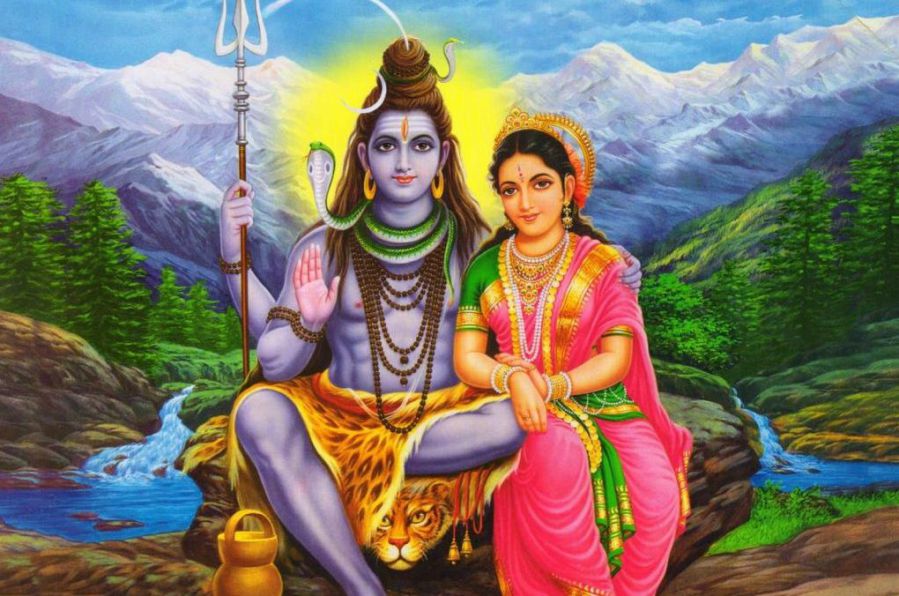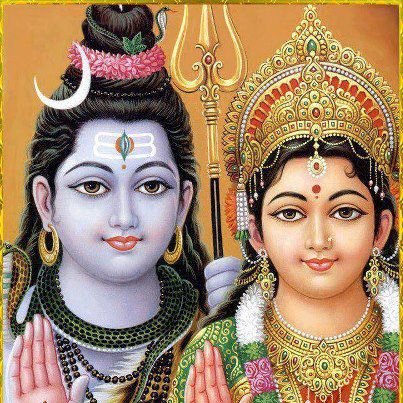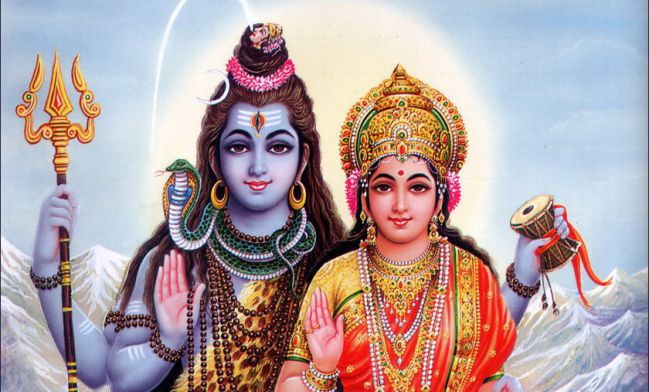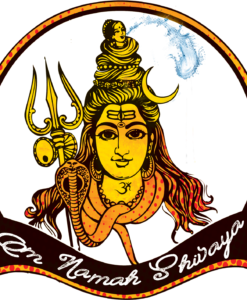No products in the cart.
What is Pradosham?
Pradosham literally means removal of sins. Falls on the 13th lunar day (Trayodashi) during the waxing and the waning phase of the moon in the Hindu Lunar calendar. Occurring between 4:30 pm to 6:00 pm on Trayodashi, the Pradosha time is propitious to pray Lord Shiva and invoke his blessings. The Pradosha day is believed to be one of those days on which Lord Shiva along with the Goddess Parvati is extremely happy, delighted and generous. These times are the windows of opportunity to remove Karma or karmic energies that limit our potential in this current life.
It is believed that worshipping Lord Shiva at Pradosha day will relieve one from sins and help him attain Moksha. The Pradosha puja is considered to be more auspicious among all the Pujas performed by the devotees of Lord Shiva. It is believed that during Pradosha period all universal beings and Gods come down to earth and attend the worship. The importance of observing Pradosha is mentioned in the Pradosha Mahatmiyam from Shiva Purana and hence Shiva devotees observe Pradosha Puja with sanctity. This bimonthly affair indicates the meeting of the Sun and the Moon in a horizontal line during their movement on their axis.
Pradosh Vrat
The Pradosh Vrat is a fast which is observed in the name of Lord Shiva, who is known to be the demolisher of the universe, but in the real sense acts as a protector of the universe. It is observed during the Sandhyakal of both Shukla Paksha (bright half) and Krishna Paksha (dark half).
 Meaning Of Pradosh Vrat
Meaning Of Pradosh Vrat
Pradosh means the dusk time. Pradosham is referred to the auspicious 3 hours period. This time of 3 hours is divided into two parts 1.5 hours before the sunset and 1.5 hours after the sunset. Vrat or fast means abstinence or reduction of some food items and drinks. Hence, Pradosh Vrat means abstinence from normal food (wheat, salt) during the time of twilight.
Types & Benefits Of Pradosh Vrat
Pradosh Vrat has its own benefits according to the days on which it occurs. These Pradoshams as per the days are known as follows :
- Som Pradosh : When the Pradosh Vrat falls on a Monday, it is known as Som Pradosh. If the Pradosh Vrat falls on a Monday, all the desires of the Lord Shiva’s devotees are fulfilled and he/she becomes a positive thinker.
- Bhaum Pradosh : When the Pradosh Vrat falls on Tuesday, it is known as Bhaum Pradosh. The benefit of Bhaum Pradosh Vrat is that it gives relief from health problems and enhances the physical health. It also brings prosperity.
- Saumya Vaara Pradosha : When the Pradosh Vrat falls on a Wednesday, it is known as Saumya Vaara Pradosha . This day of Pradosh Vrat benefits a person with education, knowledge, fulfillment of wishes and progeny.
- Guruvaara Pradosha : When the Pradosh Vrat falls on a Thursday, it is known as Guru Vaara Pradosha. On this day, the divine blessings are received from the ancestors or Pitru. All the dangers which are existing gets eliminated by observing this fast on this day.
- Bhrigu Vaara Pradosha : When the Pradosh Vrat falls on a Friday, it is known as Bhrigu Vaara Pradosha. This Pradosh Vrat benefits in removing all the negativity and opposition resulting in success and happiness.
- Shani Pradosh : When the Pradosh Vrat falls on a Saturday, it is known as Shani Pradosh. The benefit of Shani Pradosh Vrat is it brings promotion,and the lost wealth is received if the Shani Pradosh Vrat is observed.
- Bhaanu Vaara Pradosha : When the Pradosh Vrat falls on a Sunday, it is known as Bhaanu Vaara Pradosha. If Pradosh Vrat falls on this day and is observed by the devotees, it results in attaining peace and longevity.
Pradosh Vrat Katha
Pradosh Vrat is a fast observed in the name of Lord Shiva or Neelkanth. Neelkanth is the name given to Lord Shiva post the event of Samudra Manthan (churning of the ocean of milk). He saved the universe by holding the lethal venom in his throat, which turned his neck blue.
It was during the time of Samudra Manthan when everything submerged under water. Vasuki (the King of Nagas) served as a churning rope and Mount Mandarachala acted as the churning rod. Many things came out of the ocean, among which, Halahala (the lethal poison) was one. This venom could have resulted in the end of the universe. Hence, all the Devas and Ausras who were trying to churn the ocean pleaded Lord Shiva to save the universe. Halahal, before causing any harm, was consumed by Lord Shiva on the twelfth Moon day. On knowing about the poison, Goddess Parvati stopped it from entering Lord Shiva’s body by pressing his neck, which turned the color of the neck to blue. Since then, Lord Shiva is known as Neelkanth.
Post that event, Devas and Asuras got the Amrit along with new life to the universe. They all in the happiness and festivity forgot to thank Lord Shiva. But on the thirteenth day (Trayodashi), they realized their mistake and asked for mercy. Lord Shiva forgave them and celebrations continued. It is believed that that time was Pradosham when He forgave the Devas and the Asuras. Therefore, since then, the time is known as Pradosham and whoever prays to Shiva within this time, is known get his/her wishes fulfilled by Lord Shiva and also attain salvation.
Pradosh Vrat Vidhi
There are two ways and certain rituals involved in observing the Pradosh Vrat.
- During the Pradosh Vrat, people can observe a 24 hour fasting. In this kind of fasting people usually do not sleep at night. On Pradosham fast, people observe Vrat from sunrise to sunset. Post that, one can perform Lord Shiva’s Puja and can end the Pradosh Vrat.
- People can also visit Lord Shiva temples and perform Pradosh Vrat Puja during Pradosh Vrat.
- During the Pradosh fast, one needs to take bath before the sunset.
- A preliminary Puja should be performed with all the deities and Lord Ganesha firstly.
- Lord Shiva is then invoked in a Kalash (pot) placed over a square Mandal with lotus drawn on the Kalash and Durva (panicum) grass spread across.
- After this ritual, a Pradosh Vrat Story is read and heard by the devotees of Lord Shiva.
- The Maha Mrityunjaya Mantra (special Mantra to overcome the fear of death) is to then chanted 108 times.
- The Kalash water is partaken after that and the sacred ash is applied on the forehead.
- During the Pradosh fast, one can donate pot, cloth, and image of Lord Shiva to the Brahmin in the temple.
Significance Of Pradosh Vrat
As per the Shiva Purana, Pradosh Vrat is considered to be the most beneficial fast in order to attain health, wealth, and children. The Pradosh Vrat liberates the devotees from all the past and present sins. By observing Pradosham with full devotion and dedication, all the demands are fulfilled by Lord Shiva and Maa Parvati. Hence, those devotees who want to get rid of all the past sins and receive the blessings of Lord Shiva are seen to observe the Pradosh Vrat.
Pradosh Vrat Dates 2022
Trayodashi tithi in January
Pausha, Shukla Trayodashi, Shani Pradosh Vrat
Saturday, 15 January 2022
14 January at 10:19 pm – 16 Januaryat 12:57 am
Magha, Krishna Trayodashi, Ravi Pradosh Vrat
Sunday, 30 January 2022
29 January at 08:37 pm – 30 January at 05:29 pm
Trayodashi tithi in February
Magha, Shukla Trayodashi, Soma Pradosh Vrat
Monday, 14 February 2022
13 February at 06:42 pm – 14 February at 08:28 pm
Phalguna, Krishna Trayodashi, Soma Pradosh Vrat
Monday, 28 February 2022
28 February at 05:43 am – 01 March at 03:16 am
Trayodashi tithi in March
Phalguna, Shukla Trayodashi, Bhauma Pradosh Vrat
Tuesday, 15 March 2022
15 March at 01:12 pm – 16 March at 01:40 pm
Chaitra, Krishna Trayodashi, Bhauma Pradosh Vrat
Tuesday, 29 March 2022
29 March at 02:38 pm – 30 March at 01:19 pm
Trayodashi tithi in April
Chaitra, Shukla Trayodashi, Guru Pradosh Vrat
Thursday, 14 April 2022
14 April at 04:50 am – 15 April at 03:56 am
Vaishakha, Krishna Trayodashi, Guru Pradosh Vrat
Thursday, 28 April 2022
28 April at 12:24 am – 29 April at 12:27 am
Trayodashi tithi in May
Vaishakha, Shukla Trayodashi, Shukra Pradosh Vrat
Friday, 13 May 2022
13 May at 05:27 pm – 14 May at 03:23 pm
Jyeshtha, Krishna Trayodashi, Shukra Pradosh Vrat
Friday, 27 May 2022
27 May at 11:48 am – 28 May at 1:10 pm
Trayodashi tithi in June
Jyeshtha, Shukla Trayodashi, Ravi Pradosh Vrat
Sunday, 12 June 2022
12 June at 03:24 am – 13 June at 12:27 am
Ashadha, Krishna Trayodashi, Ravi Pradosh Vrat
Sunday, 26 June 2022
26 June at 01:10 am – 27 June at 03:26 am
Trayodashi tithi in July
Ashadha, Krishna Trayodashi, Soma Pradosh Vrat
Monday, 11 July 2022
11 July at 11:14 am – 12 July at 07:46 am
Shravana, Krishna Trayodashi, Soma Pradosh Vrat
Monday, 25 July 2022
25 July at 04:16 pm – 26 July at 06:47 pm
Trayodashi tithi in August
Shravana, Shukla Trayodashi, Bhauma Pradosh Vrat
Tuesday, 09 August 2022
09 August at 05:46 pm – 10 August at 02:16 pm
Bhadrapada, Krishna Trayodashi, Budha Pradosh Vrat
Wednesday, 24 August 2022
24 August at 08:31 am – 25 August at 10:38 am
Trayodashi tithi in September
Bhadrapada, Shukla Trayodashi, Guru Pradosh Vrat
Thursday, 08 September 2022
08 September at 12:05 am – 08 September at 09:03 pm
Ashwina, Krishna Trayodashi, Shukra Pradosh Vrat
Friday, 23 September 2022
23 September at 01:18 am – 24 September at 02:31 am
Trayodashi tithi in October
Ashwina, Shukla Trayodashi, Shukra Pradosh Vrat
Friday, 07 October 2022
07 October at 07:27 am – 08 October at 05:25 am
Kartika, Krishna Trayodashi, Shani Pradosh Vrat
Saturday, 22 October 2022
22 October at 06:03 pm – 23 October at 06:03 pm
Trayodashi tithi in November
Kartika, Shukla Trayodashi, Shani Pradosh Vrat
Saturday, 05 November 2022
05 November at 05:07 pm – 06 November at 04:29 pm
Margashirsha, Krishna Trayodashi, Soma Pradosh Vrat
Monday, 21 November 2022
21 November at 10:07 am – 22 November at 08:49 am
Trayodashi tithi in December
Margashirsha, Shukla Trayodashi, Soma Pradosh Vrat
Monday, 05 December 2022
05 December at 05:77 am – 06 December at 06:47 am
Pausha, Krishna Trayodashi, Budha Pradosh Vrat
Wednesday, 21 December 2022
21 December at 00:45 am – 22 December at 10:16 pm









